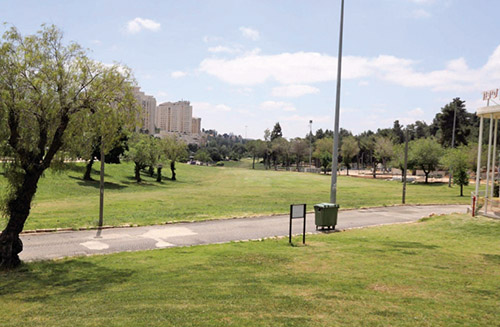

Israel may be on the cusp of a full closure and, if the country shuts down, it will be for at least a month, according to Health Ministry director-general Prof. Chezy Levy.
Coronavirus commissioner Prof. Ronni Gamzu convened the heads of Israel’s largest hospitals Tuesday night for a meeting about the growing rate of infection. According to a report by N12, Levy said that if a country-wide lockdown is decided upon, it will last about a month and no less.
“A closure of two or three weeks will not be enough to make change,” Levy said.
According to the report, the heads of the hospitals are now pushing for a closure as well, as the number of patients in serious condition continues to rise.
On Wednesday, the Health Ministry reported that 3,506 people were diagnosed with the virus the day before. There were 470 patients in serious condition, of whom 140 were intubated.
The death toll also rose, reaching 1,048.
Nearly all of the hospitals are reporting heavy loads of patients, all beds full and a concern that they will be unable to care properly for their patients. Multiple top doctors and heads of hospitals have told The Jerusalem Post in recent days that without more trained staff before the winter, the system will break down.
Although the Health Ministry agreed to pay for additional nurses and doctors, hiring them has been a challenge for many of the institutions, the Post has learned.
The heads of hospitals contended that the earlier the closure takes effect, the greater chance that it will be shorter.
On Thursday, Gamzu is expected to reveal a plan for how to handle the High Holy Days under the shadow of such high infection rates. For now, it appears that his recommendations are likely to include closing the streets to ensure that people eat their holiday meals only with their immediate family; closing schools, businesses and retail outlets; and closing restaurants.
On Wednesday, self-employed workers and small businesses held an emergency meeting where it was determined that if they are not provided advance compensation, they would break any High Holy Day closure.
“We have lost faith in the government,” said Roi Cohen, president of LAHAV, the Israel Chamber of Independent Organizations and Businesses. He said another closure would bring economic disaster to the state and that businesses would not shut down.
Representatives from the culture, tourism, fashion, restaurant, fitness and other sectors were present at the meeting.
On Tuesday, some 40 cities and neighborhoods across Israel were put under night curfews to help curtail the spread of the virus.
During an interview with the Hebrew website Ynet, Prof. Ran Blitzer commented on the number of people who broke the curfew, saying that “on the first day of implementing any new regulations there is often confusion… I believe we will see an improvement in both the public’s response and in enforcement.”
At the same time, he also said that “we have moved to a disturbing picture of high but stable morbidity to a more dangerous picture in which there is an increase in morbidity. This gives the hint that the time may be approaching for further steps, as we must not get to a place where the hospitals are full.”
He added that “in the winter there will be flu patients who will take up [hospital] beds… Reaching winter in this way is a risk to public health that decision makers will have a hard time living with.”
Gamzu, Health Minister Yuli Edelstein and several of his staff entered isolation Tuesday night after one of their senior staff members tested positive for the coronavirus. Health Ministry director-general Levy, Deputy Health Minister MK Yoav Kisch and the head of Shield of Israel haredi desk Maj.-Gen. (Res.) Roni Numa also entered isolation, along with several other ministry employees.
Later it was revealed that a second staff member, the head of the Shield of Israel Arab desk, Ayman Saif, tested positive for the coronavirus.
“I have a daily presence in cities and villages where the morbidity is particularly high,” Said said. “It is similar to a battle scene and it increases the chances of getting sick.”
He said he would still be able to carry out his role.
By Maayan Jaffe-Hoffman/Jpost(printed with permission)













